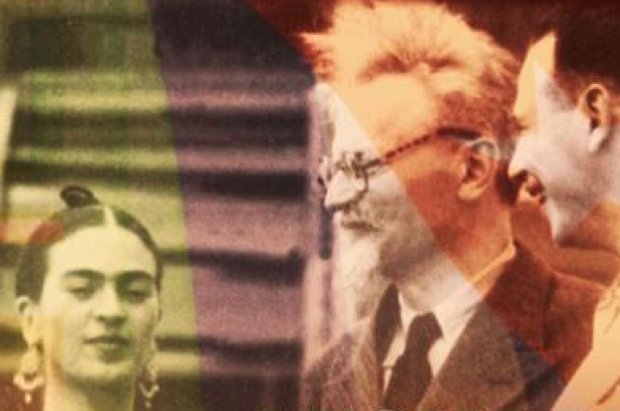Leon Trotsky’s grandson, Esteban Volkov, is a retired chemist in his early eighties. I met him not long ago in the house in Mexico City where his grandfather was murdered in 1940 with an ice-pick. Volkov had grown up in that house surrounded by 20-foot garden walls and watchtowers with slits in them for machine-guns. The protection was no defence against Trotsky’s eventual assassin, the Spanish-born Stalinist Ramón Mercader, who very ably infiltrated Trotsky’s Mexico circle and, on 20 August, struck the revolutionary on the front of his head with that gruesome weapon. Trotsky bellowed in pain but managed to fend off his assailant before collapsing. His bodyguards hurried in and beat off the intruder; Trotsky was rushed to hospital, where he died the following day.
Almost all of Trotsky’s relatives were afterwards murdered by Stalin. ‘I am the only person in my family to reach my age,’ Volkov said to me with some pride. After Lenin, Trotsky was the most important leader of the 1917 Bolshevik revolution. A hero to the Russian masses, he held very decided views about communist strategy, and became fiercely opposed to Stalinist tyranny. The walrus-moustached vozhd (leader) had sabotaged the workers’ revolution by confining it to one country, Trotsky believed; in his view Stalin was ‘an outstanding mediocrity’.
The Man Who Loved Dogs, by the Cuban novelist Leonardo Padura, is a long (really too long) thriller about Mexico’s most famous assassination case. Having been jailed by the Mexican authorities for 20 years on a murder charge, in 1960 Ramón Mercader went to live in Fidel’s revolutionary Havana. A year later, in 1961, he transferred to Moscow, where the Khrushchev regime declared him a hero of the people (even though Khrushchev had earlier denounced Stalin as a mass-murderer). To the end of his days, Mercader moved between domiciles in Russia and Cuba; he died in Havana in 1978, more or less forgotten.
Padura fortifies his story with details culled from the many biographies of Trotsky (notably, Bertrand Patenaude’s recent Stalin’s Nemesis) to create a book which is James Ellroy-like in its scope and heft. At nearly 600 pages The Man Who Loved Dogs is certainly too heavy on the wrists, but all the same it’s absorbing.
The narrative opens in Havana one day in the late 1970s; a mysterious man is seen walking his Russian wolfhounds on a beach. Could he be the infamous Mercader? Along the way, Padura tells of other attempts made on Trotsky’s life. The first occurred on 24 May 1940, when a group of 20 armed Stalinists stormed his Mexican house; having disarmed the bodyguards, they threw grenades and machine-gunned about the place. Trotsky and his wife Natalia survived by huddling under their bed; a bullet fired at their sleeping grandson Esteban passed through the mattress and merely grazed him. Miraculously, Trotsky received no more than scratches to the face from flying glass; next time it would be the blunt end of an ice-pick.
Seemingly, the purpose of the 24 May raid was not just murder but arson: the bullets were intended for Trotsky; the incendiary bombs for his personal papers, which contained damaging allegations about the Great Terror of 1937–38, when anyone who had threatened the Soviet Union by so much as his thoughts would have to be liquidated, Stalin decreed. Trotsky, a vain, brilliant and in many ways unpleasant man, is brought to vivid life and death in this atmospheric noir.






Comments